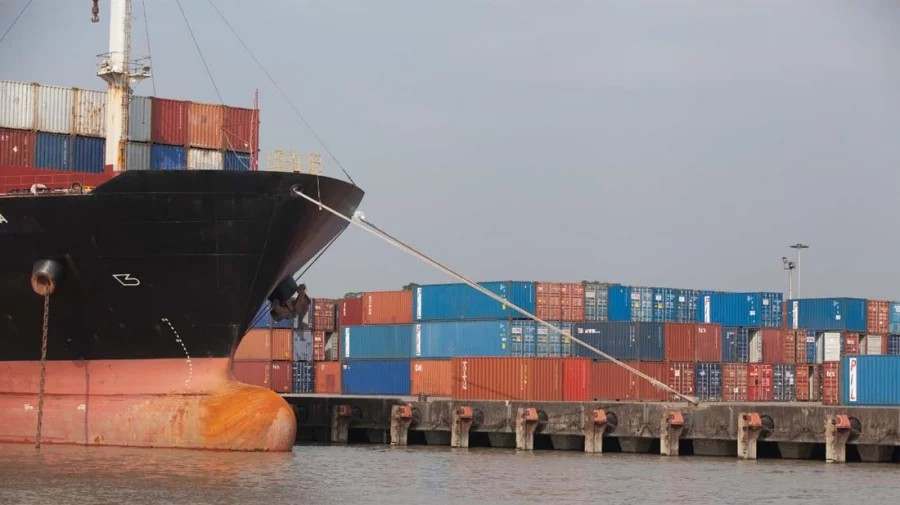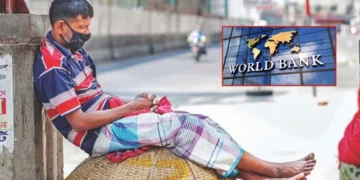Government offices, ports, factories, and banks all shut for 10 days
During the 10-day Eid-ul-Azha holiday, almost all sectors of Bangladesh—including government offices, banks, insurance companies, ports, factories, private offices, and shops—remained closed. Economists and business leaders say this long shutdown created a kind of stagnation in both public life and national production.
Major Markets Still Not Fully Active After Eid
Even after several days of Eid have passed, many major markets in Dhaka are not yet fully active. Daily buying and selling are still slow, and normal business activities have not resumed.
At Karwan Bazar, one of the country’s largest wholesale vegetable markets, business has been very slow. A wholesaler named Monta Gazi said,
“Only now are vegetables and other items starting to arrive. There are fewer people in the city, and many workers are still on leave. So trading is almost at a standstill.”
Similar situations are seen in other major wholesale markets like Puran Dhaka, Badda, Jatrabari, and Sadarghat, where the movement of goods remains very slow.
Read More: Tarique Rahman Gifts Books and Pen to Professor Yunus to Strengthen Respect and Unity
Goods Transport and Supply Chain Moving Slowly
Sadarghat’s wholesaler Mokbul Hossain noted,
“Seasonal fruits, fish, vegetables—all are being transported very slowly. Full business may not start before Sunday.”
Because of slow transportation, supply and market operations are not running normally.
Export and Import Activities Also Affected
Foreign trade has also been affected. Three major land ports—Banglabandha, Bhomra, and Benapole—remained closed for the full 10-day holiday. This brought trade at the land ports to a complete stop.
Although Chattogram Port was technically open, it too was running very slowly. Most of the port’s workers were on Eid vacation, and because garment factories were closed, there was less pressure. However, due to the shortage of staff, unloading goods from ships was delayed.
Business Leaders Say Long Holidays Hurt the Economy
Factory owners and business associations say such long, continuous holidays harm the economy. After a 9-day break during Eid-ul-Fitr, now another 10-day break during Eid-ul-Azha has disrupted factory production.
Taskin Ahmed, President of the Dhaka Chamber of Commerce and Industry (DCCI), expressed strong criticism. He said,
“Our economy is already under pressure. Giving 10 days off again means that all economic sectors are shut down. This is nothing but madness. Instead of giving one day off and resuming work the next, we are stopping everything for 10 days—there’s no logic in that.”
He also said,
“People won’t return to work in full swing after 10 days. It usually takes another week to come back to normal. If businesses close for 20 days in a month, both owners and workers suffer.”
Experts Recommend Better Planning and Stakeholder Consultation
Dr. Towfiqul Islam, Senior Research Fellow at the Center for Policy Dialogue (CPD), said,
“Giving 10 days of leave is a big decision. It seems the government didn’t discuss it properly with all stakeholders. This kind of decision will definitely have a negative impact on the economy.”
He also recommended that factories should follow labour laws when giving holidays, instead of following the general holiday calendar.
Global Trade Also Faces Setbacks from Long National Holidays
Mohammad Helal Uddin, Executive Vice Chairman of the Microcredit Regulatory Authority, mentioned that long holidays create serious problems for international trade.
He said,
“Some important economic sectors should have remained open during the long holiday. For example, all banks were closed. If banks dealing with import-export stay shut for 10 days, trade will be seriously harmed. Some specialized banks could have been kept open.”
Need for a Roadmap to Keep Key Services Running
Although long holidays may help people enjoy family time, the country lacks a roadmap on how to keep essential economic activities running with a minimum workforce. The economist called for a more organized holiday plan in the future to reduce economic losses.
Source: Dhaka Tribune
Share via:
















